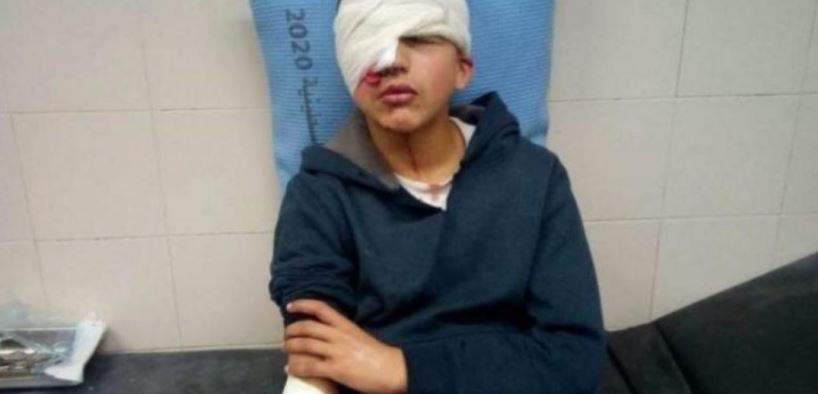An Israeli bullet penetrates Palestinian child's right eye

Izz ad-Din Al-Batsh, 13, used to work in a shop for vegetables for two years to help and support his family suffering from hard economic conditions.
An Israeli bullet hacked Al-Batsh's safety and caused him to lose his right eye to be an eyewitness on Israel's crimes in the old city of Jerusalem.
Al-Batsh was shot by a rubber bullet in the eye during clashes between Palestinian youths and Israeli forces.
"The bullet shot my child while working inside the shop," his father said.
He noted that his child was shot at midday. He received medicine in a governmental hospital in Hebron and took more than 10 hours to arrive at St John of Jerusalem Eye Hospital.
The father hardly realized his son's loss of his eye.
He also said that the Israeli occupation forces prevented him from being beside his son under the pretext of security procedures, and noted that what his son faced was a part of the violations and harassment practiced against the citizens of the old city.
"Weekly clashes happening in Bab Al-Zawya are a chance for the youths to express their anger resulting from Israel's attempts to occupy and Judaize the land," Emad Abo Shamsiyya, coordinator of the defenders' committee of human rights, said.
Abo Shamsiyya noted that the Bab Al-Zawya area witnesses daily raids of Israeli forces. This affects the commercial movement in the middle of the city and reduces the number of visitors.
He also said Israel's practices are systematic to evacuate the city, and harras the citizens.
The Israeli occupation forces established 4 settlement outposts on the lands of the old city. 800 settlers live there with protection by 1500 Israeli soldiers.
They also evacuated more than 43% of the homes in the old city and closed 77 % of the shops (1829 shops).
Source : Safa

WRITE YOUR COMMENT